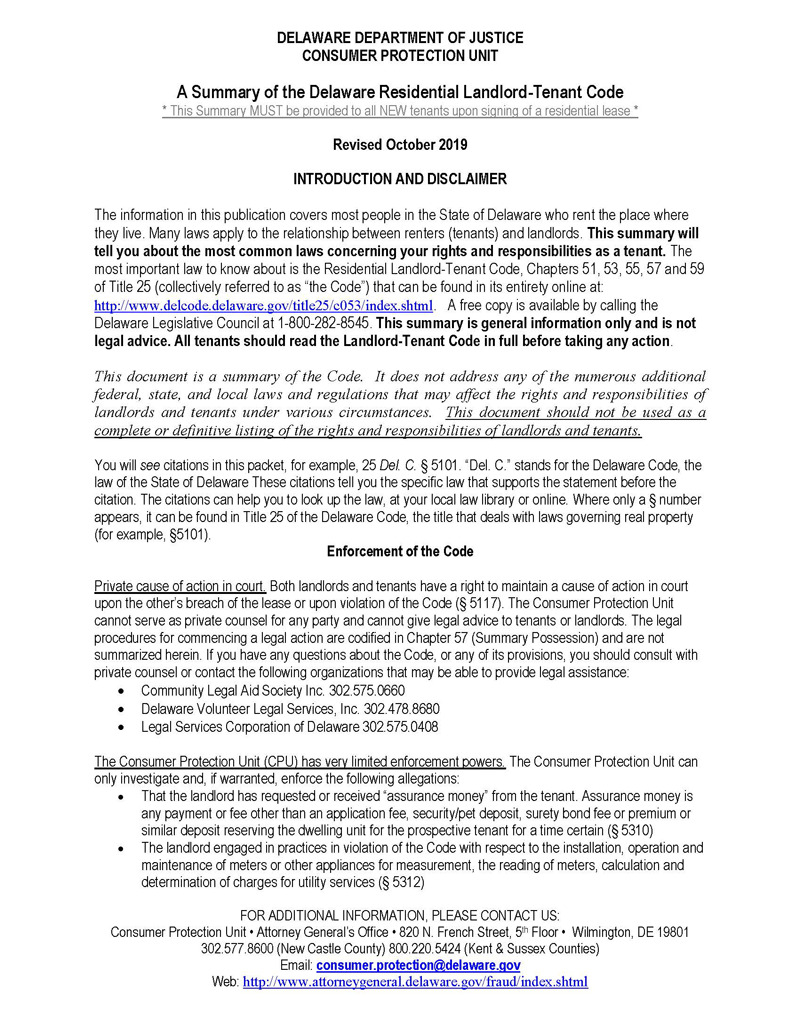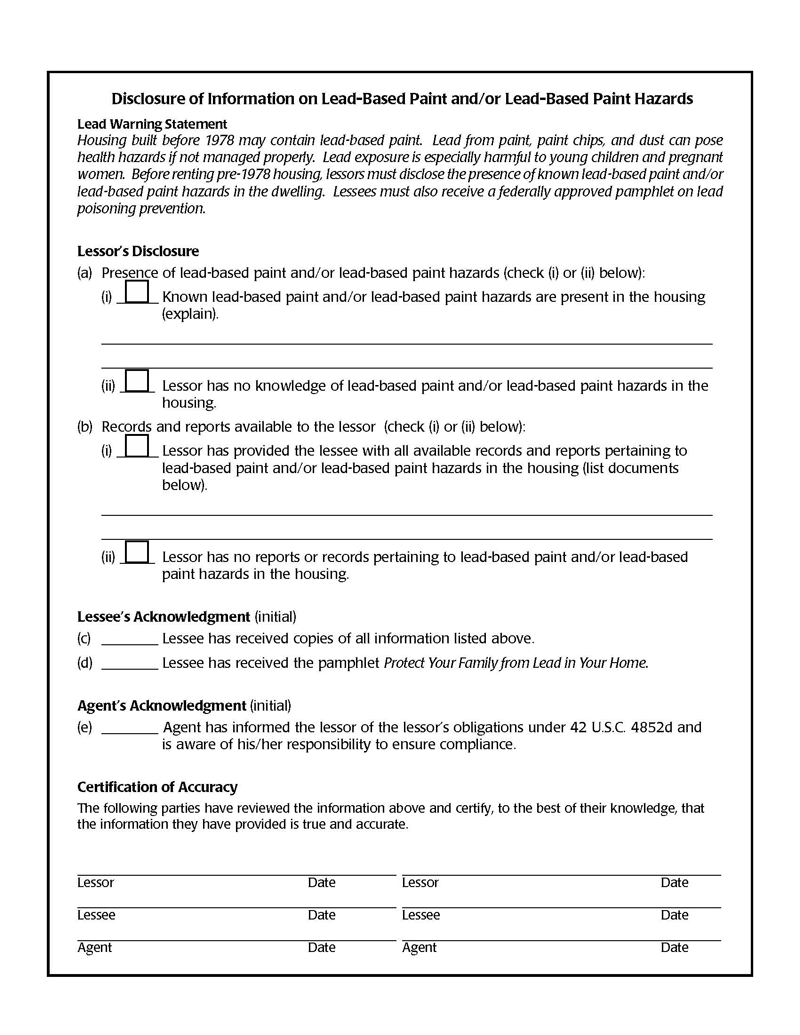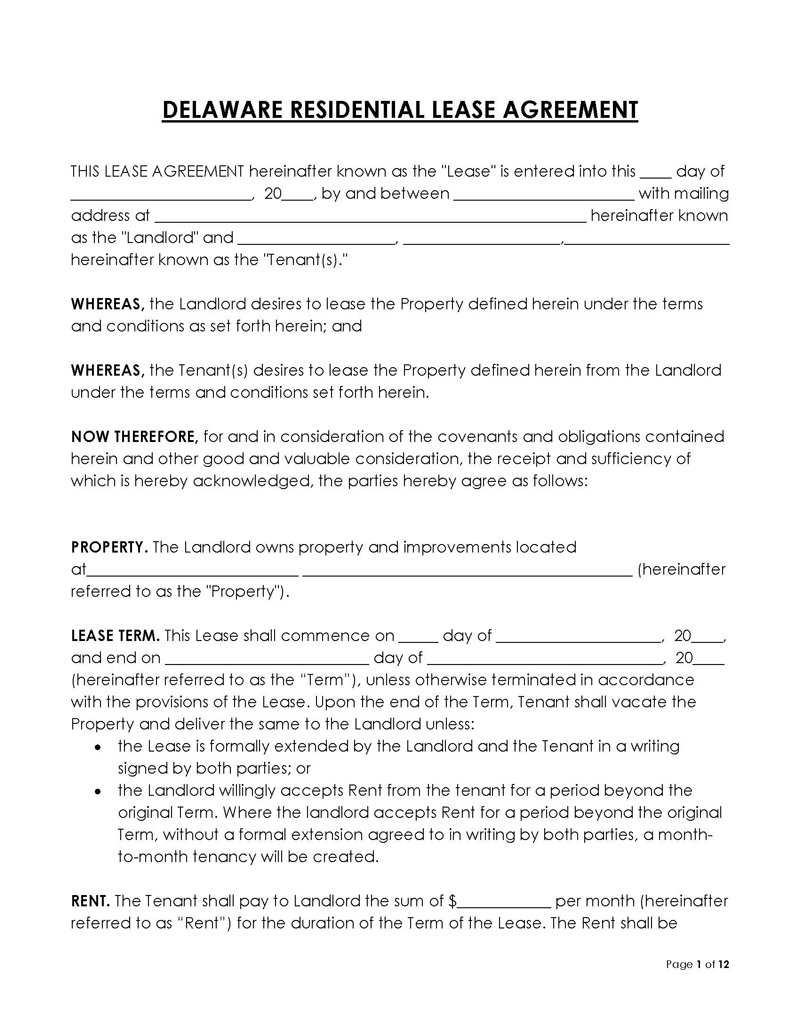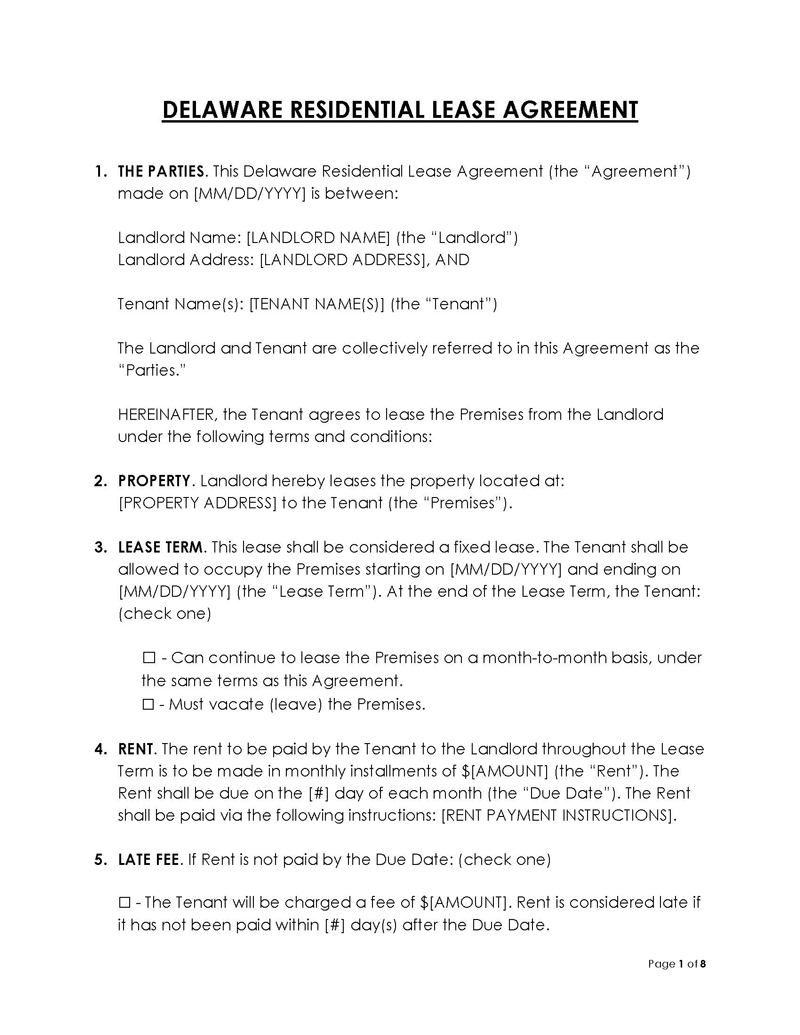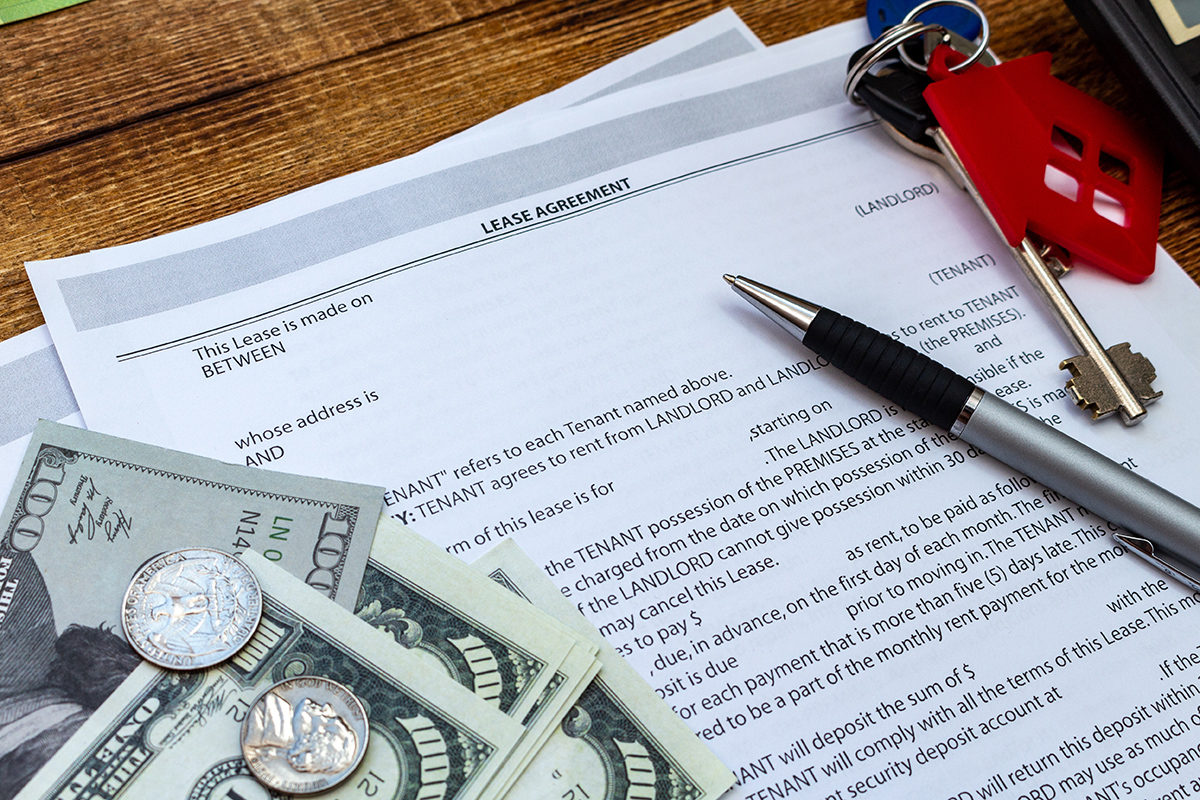A lease agreement in Delaware is a legal contract that provides a path for a homeowner to rent out various residential properties to a potential tenant, stipulating a specific monthly compensation.
Generally, this document will be signed after meeting with the tenant and agreeing to the conditions. After checking for different elements like the occupant’s proof of earnings and an absence of a criminal background, the landlord in Delaware can offer a lease agreement that states all the terms that both parties must abide by. Once both parties authorize the contract, the tenant has the lawful right to stay on the property during the specified duration. This type of contract is controlled by Title 25, Part 3 (Residential Landlord-Tenant Code) rental law and can be utilized for various sorts of facilities, either residential or commercial.
Delaware Lease Agreement Types
There are numerous distinct types of agreements available in Delaware. These contracts are essential to clearly understand the terms and conditions of the tenant’s right to assume possession of the property.
Here are some of the most common types of lease agreements in Delaware:
Commercial lease agreement
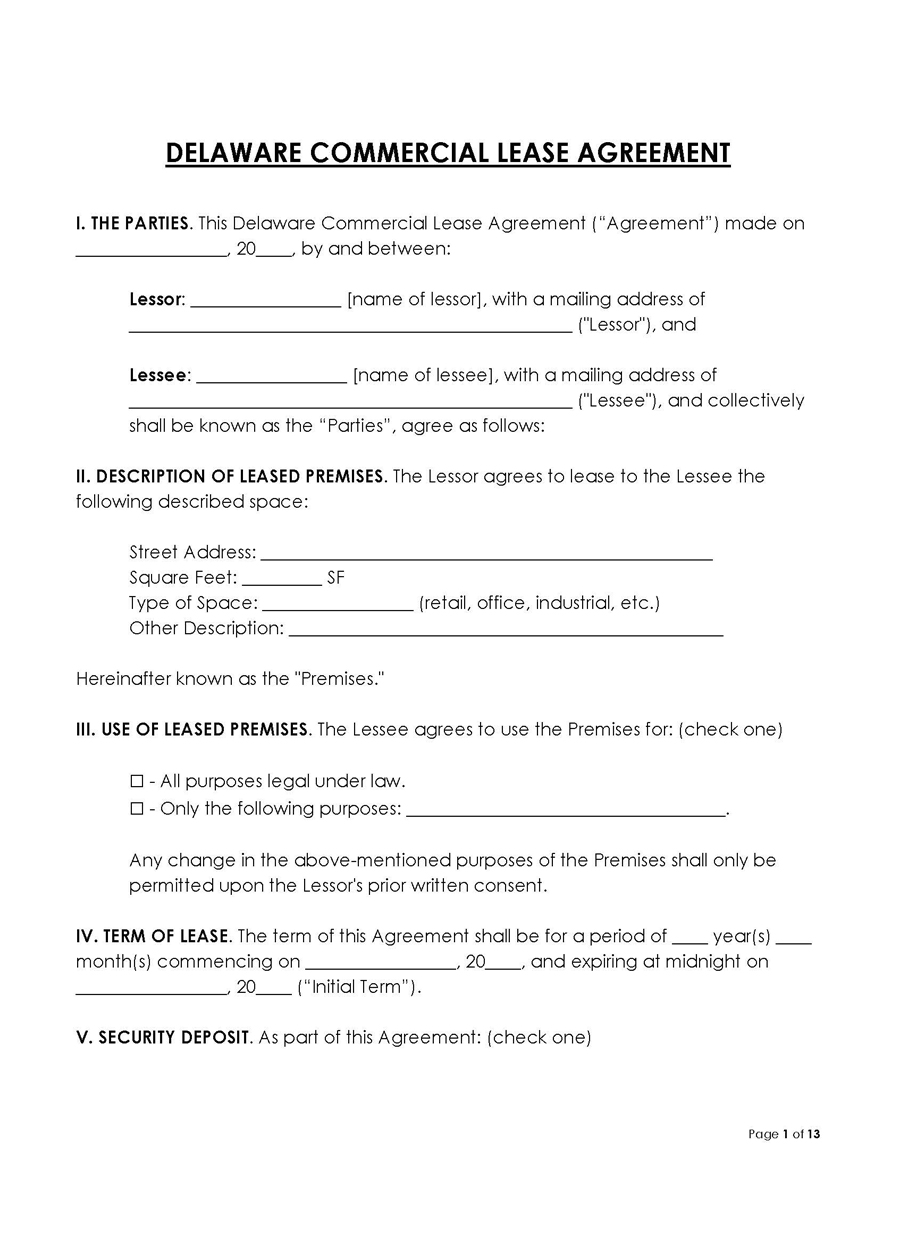
The commercial lease agreement is a unique document used to rent out primarily for business purposes. However, these commercial leases can be used for many different spaces, such as offices, restaurants, or industrial buildings. These contracts should be signed, and therefore, either party will be held legally responsible for maintaining the terms and conditions of the contract. These agreements in Delaware must always include all of the details regarding the proceedings. This includes the period for the validity of the contract and all economic stipulations, such as monthly rent and security deposits. It should also specify whether any renovations to the property are allowed.
Month-to-month lease agreement
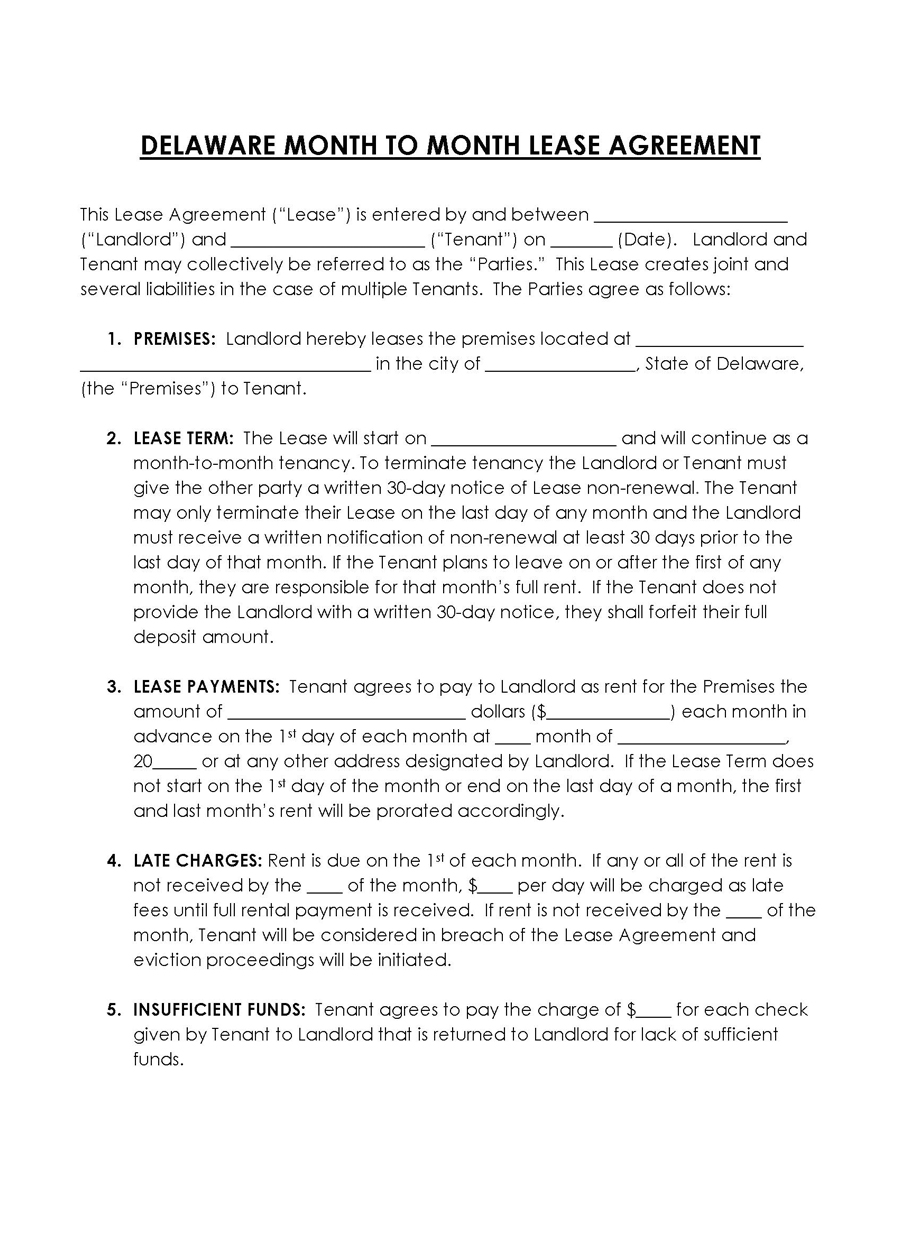
This contract is used for rental agreements without a fixed term, but instead one that renews every month. This allows both the tenant and the property owner to end the lease within 30 days and maintain a certain level of flexibility. This type of agreement still requires notice to be given to both parties. This guarantees that neither party ultimately faces any financial difficulties suddenly. Regardless, the same conditions are still applied to the roles of tenant and landlord, and both parties may still be held responsible for upholding the terms of the agreement.
Rent-to-own lease agreement
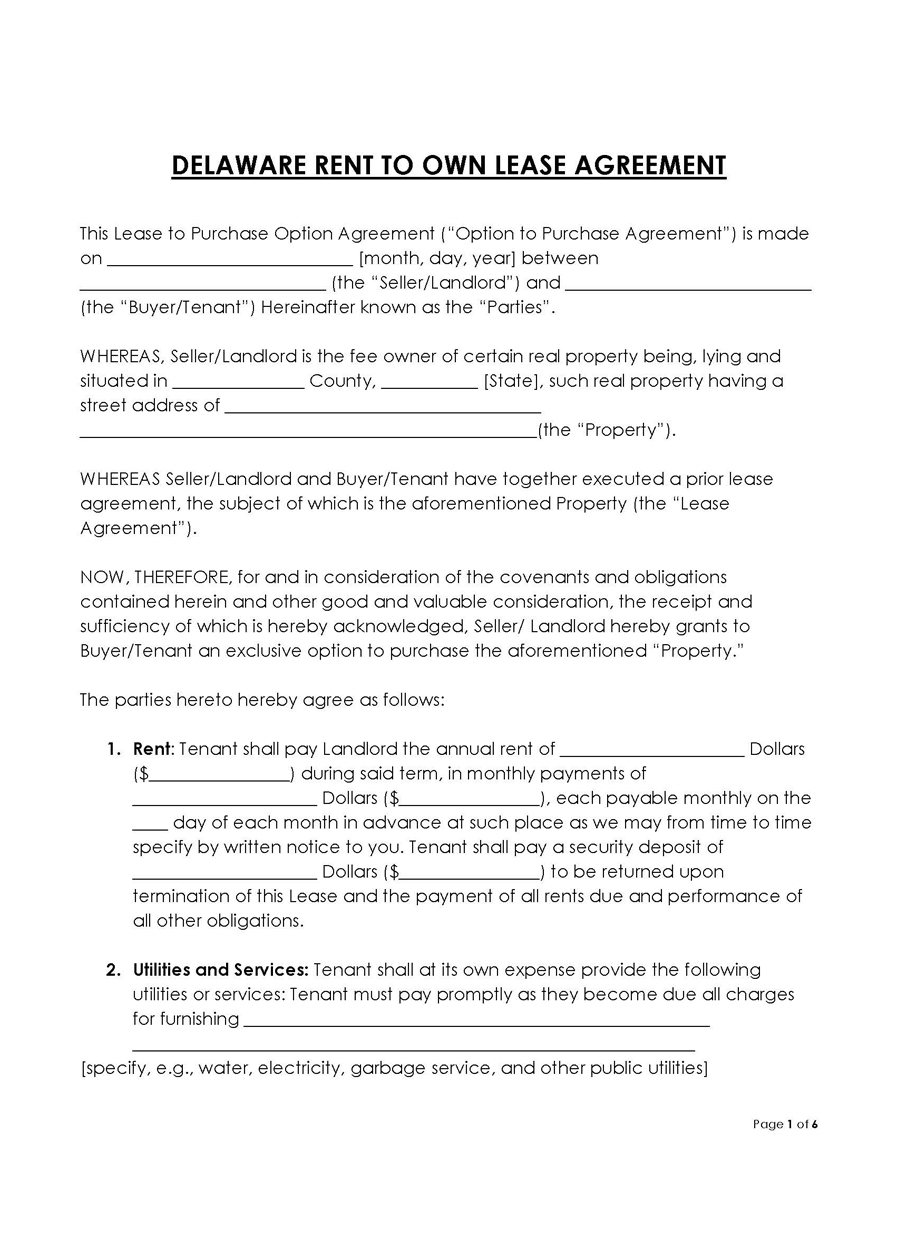
A rent-to-own lease is a special agreement that allows the tenant to purchase the property in Delaware. This document will include the same kinds of terms and conditions as a standard document but will also detail the proceedings for the ability to purchase the property. The tenant isn’t required to purchase the property, but they ultimately may do so. If the tenant does not choose to buy it, the contract will end like a standard Delaware lease agreement. These agreements almost always have a one-year term with a typical security deposit.
Room rental (roommate) agreement
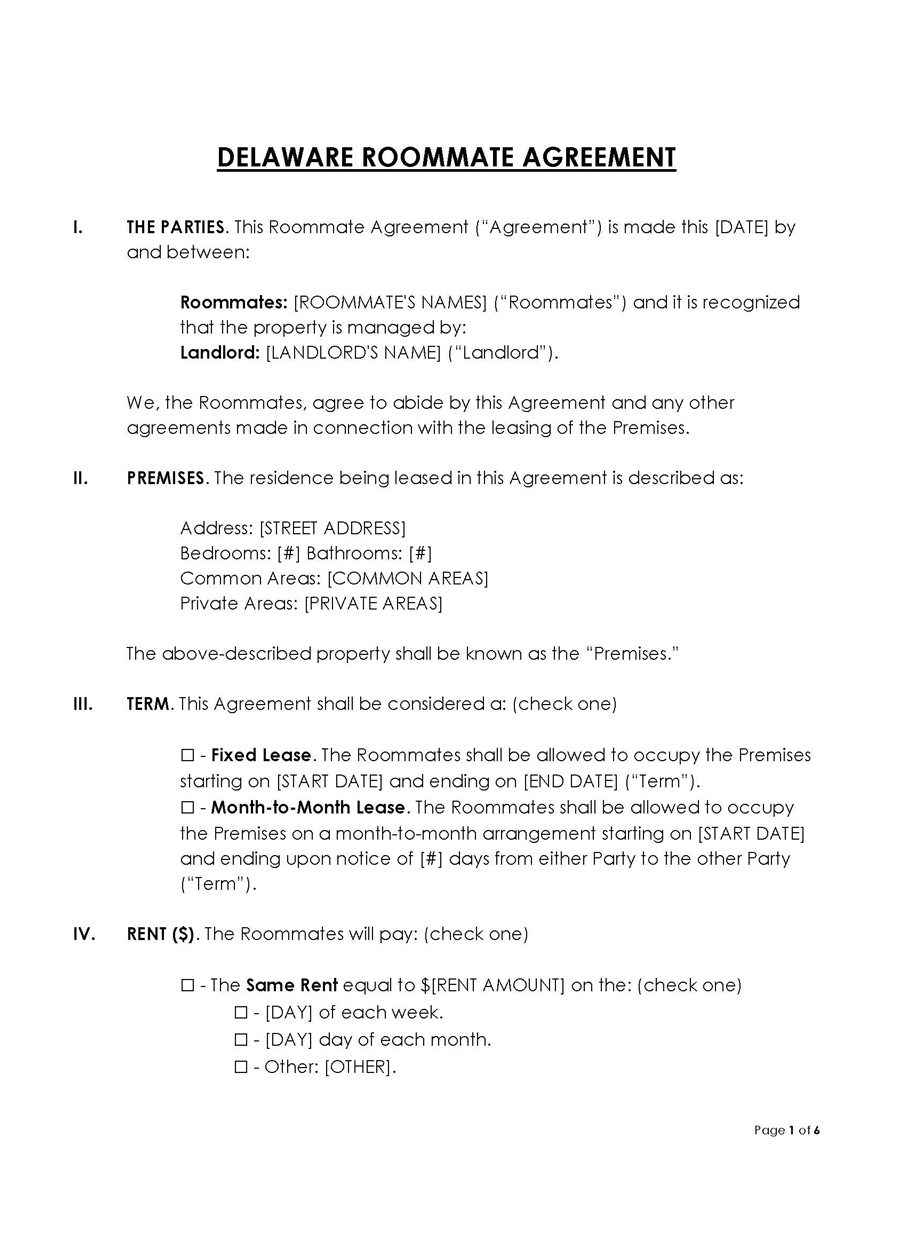
This agreement is generally created for tenants sharing the property. This type of agreement contains many different conditions and often is used to protect tenants from becoming liable for another tenant damaging the property. While these agreements are held between roommates, only the tenant with a direct leasing agreement with the landlord may represent their interests.
Standard lease agreement
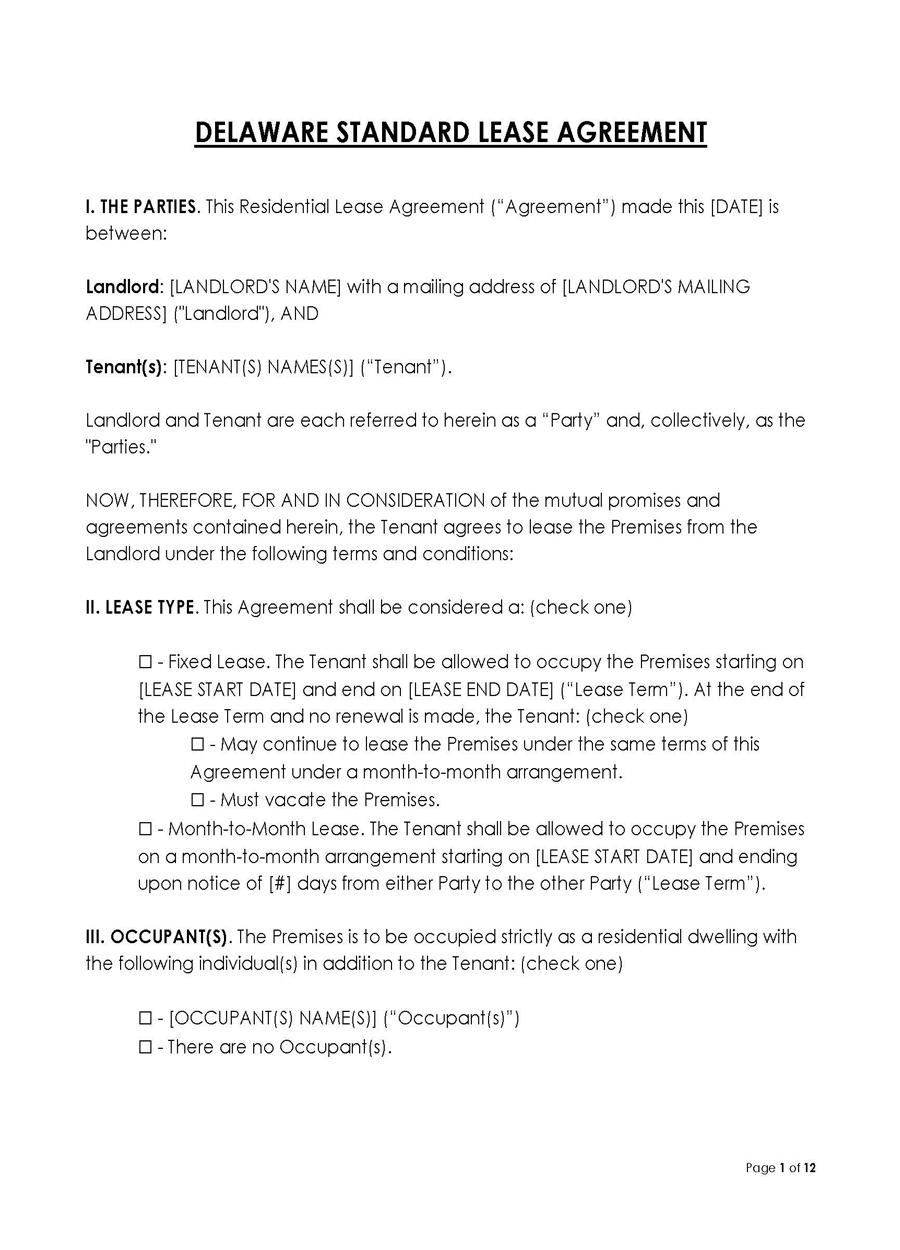
A lease agreement in Delaware is a formal document that includes the terms and conditions of a tenant using a landlord’s property. This binding contract will describe all the related requirements and begin as soon as the tenant has access to the property. As the objective of this agreement is to protect both parties, the tenant and the landlord must agree to all the conditions of the document and sign it. A landlord may request an approved rental application and a security deposit before allowing access in many cases. This type of contract is governed by Delaware state laws, such as Title 25, Chapter 53.
Sublease agreement
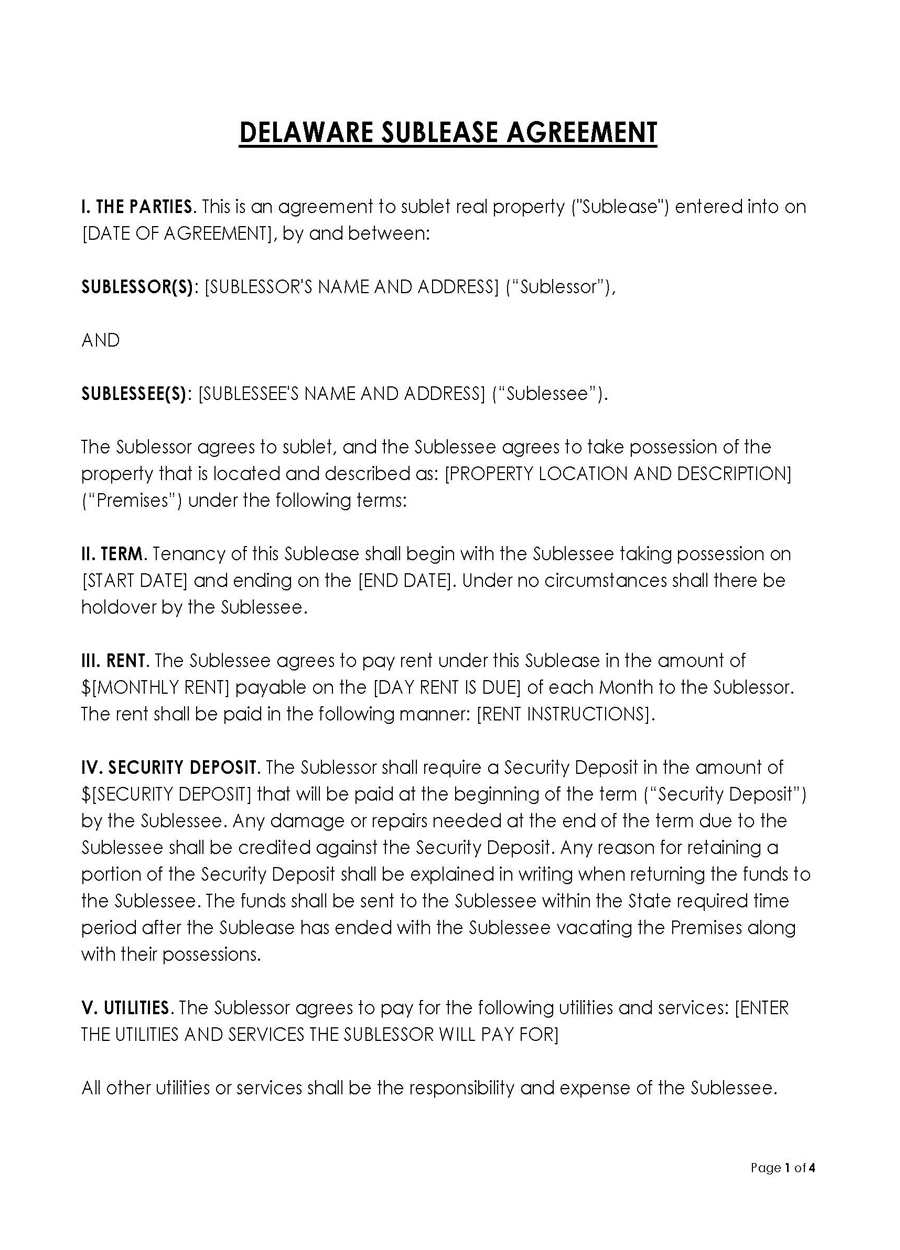
This unique agreement is a contract between a current tenant and a potential lessee who will substitute them in the living situation. The current tenant (the sub-lessor) is still held liable for the conditions of their original contract with the landlord. Additionally, the current tenant must receive written permission from the landlord. This may be a beneficial situation for both parties, as the sub-lessor may be able to leave the property without incurring any significant financial difficulties.
Delaware Lease Agreement Disclosures
The agreement in Delaware legally mandated several conditions to be stated. These details guarantee that every possible aspect of the living arrangement is mentioned so that neither party suffers from any misgivings.
Some of the disclosures that must be included are:
Landlord-tenant code
As outlined by the state law, a copy of this code must be given to all new tenants, as outlined by the state law § 5118. This tenant code will outline the appropriate conduct of both parties.
Likewise, this code outlines what information must be included within the rental agreement, including appropriate specifications relevant to any property type.
Lead-based paint
Within the USA, government legislation calls for all landlords to alert their renters of the possible dangers of lead-based paints for any homes constructed before 1978. Within the state of Delaware, proprietors have several duties.
They must attach a complete disclosure form to the lease agreement. After that, they must also provide the tenant with a flyer that the Environmental Protection Agency authorized. This pamphlet should caution all future tenants about any possible risks of lead-based paints. And finally, the landlord has to offer an in-depth report of all known usages of lead-based paint on the residential or commercial property. In apartments, this includes any usual areas and building-wide analyses of the property.
Owner/agent disclosure
According to the law § 5105, all landlords must give their tenants the names and business addresses of any owners or agents for the relevant property. In other words, if an agent is handling all the rental proceedings, but they are not the owner, then both of these responsible parties need to have their identifying information listed. This allows for the tenants to contact them in the future.
Marijuana use
Delaware law recommends that landlords be very clear about where medical marijuana is allowed on the property. Delaware also allows landlords to restrict marijuana use to a non-smoking form not to bother other residents.
Move-in checklist
The tenant should be provided an itemized list of all damages to the home. A move-in checklist is a great way to protect the tenant from being held responsible for any parts of the property that were previously damaged. This checklist may be signed as a separate document and later attached to the agreement.
Late and returned check fees
Delaware also recommends that landlords describe the steps following a late or returned check. In theory, the bounced check fee should reflect the landlord’s expenditure due to the late payment. While there is no maximum to these fees, they tend to be no more than 10% of monthly rent, and, additionally, tenants may only be charged a late fee after the documented due date for rent.
Bed bug disclosure
When a rental property has a history of bed bug infestations, the landlord must disclose that information to the tenant. This disclosure will notify the tenant that they will be responsible for informing the landlord of any future infestations and cooperate with any measures to handle a new infestation.
Asbestos disclosure
Landlords must attach an asbestos disclosure statement if their property was built before 1981. These disclosures should help create an understanding between the tenant and the landlord of the current existence of any asbestos and proper actions regarding it.
Mold disclosure
If there is any current mold on the property, the landlord must inform the tenant. This protects the tenant from being held responsible for any damages related to mold in the future.
Extended absence
In long-term absences, tenants must disclose this information to the landlord. This must be done before the first day of the extended absence.
EXAMPLE
If the landlord provides 48 hours’ notice, they can enter the property for inspection, maintenance, or any safekeeping measures if deemed reasonably necessary.
Service fees for amenities
In cases where it is applicable, a landlord must disclose to the tenant that they have the choice of paying for community amenities. These include fees such as for a community gym or sports center. Since these fees are optional, landlords are obligated to inform the tenant that they are not required.
Payment of taxes
As landlords are allowed to make tenants responsible for paying property taxes, they must inform the tenants of that responsibility if applicable. In most cases, the tenant may request the property taxes be included within the rent payment.
Security deposit
In a lease agreement in Delaware, a landlord may only set up to one month’s worth of rent as a security deposit, as established in Title 25 § 5514. However, this is only applicable to yearly agreements, as month-to-month leases have no minimum or maximum amount.
The landlord should return the security deposit within 20 days of abandoning the property, as noted in Title 25 § 5514. If any deductions are made, the landlord must provide an itemized list explaining the costs.
Right to enter
If a landlord chooses to enter the property, a 48-hour notice must be given to the tenants. This requirement is established in Title 25 § 5509. Without a minimum of 48 hours’ warning, the landlord is not legally allowed to access the premises.
Rent due
The rent due date is almost always at the start of every month unless the lease explicitly states otherwise; as noted in § 5501 (b), one month’s rent should be paid at this time. The payment proceedings must be specific and agreed upon by both parties, including the time and location of payment.
Delaware Lease Agreement Templates
Key Takeaways
There are several considerations to consider when preparing a lease agreement in Delaware. First, the rental agreement must match the requirements set out by Title 25, Part 3 of the Residential Landlord-Tenant Code.
Here are a few key takeaways that you should consider about these agreements in Delaware:
- The maximum duration of any standard lease agreement is one year. If a specific lease is designed to be longer than one year, it must be explicitly stated and signed by both parties.
- Once both parties sign the contract and the tenant moves in, it becomes a legally binding agreement.
- Generally, lease agreements do not need notarization in Delaware. As long as the document is legally sound, notarization is not required.
- These agreements can also be renewed automatically. However, a yearly lease automatically becomes a month-to-month lease upon expiration of the landlord, and the tenant does not discuss final proceedings.
